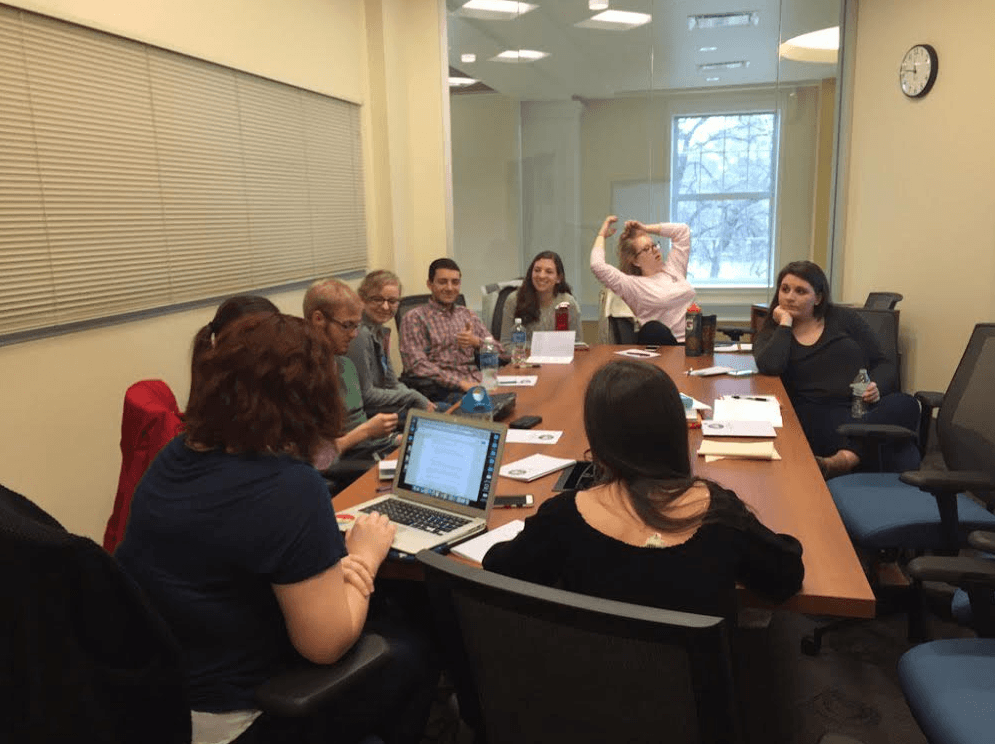Honor Council to rewrite Honor Code, change policies on smaller offenses
4 min read
UMW Honor Council | Twitter
By HOGAN LEPORE
The Honor Council, the body that enforces the Honor Code at the University of Mary Washington, is in the process of rewriting the school’s honor practices. Currently, all alleged honor violations are treated in the same way, regardless of the severity. The council wants to develop a tiered structure, in which smaller infractions will be dealt with differently.
The Honor Code is one of the longest standing traditions at the UMW. Established in 1966, the code was developed to instill in students the high standards of integrity. The Honor Code makes students responsible for acting ethically in class and in other aspects of the campus community.
It is the reason professors leave the room, for example, when students are taking exams, trusting their classes won’t cheat.
Carter Nordike, the Treasurer of the Honor Council and senior English major, believes the community backs the council in every decision they make.
“We know we are trusted by our community and we attempt to shape the Honor Code to serve the community in the best way possible,” Nordike said.
Nordike is a senior who realizes that these changes to the Honor Code could leave a lasting legacy on the school. He explained the council sees the changes as a way to ensure that the trust people feel with one another on campus remains intact and grows stronger.
“By building a more pleasing way of operating, we can ensure a greater experience for allstudents on campus,” Nordike said.
Some students have expressed concern about the changes. Earlier this year, the council reached out to members of the community to let them know changes were afoot. Some said it was scary to change the whole document, however the council reassures people that the transition will be smooth.
As a group, the congregation picks apart the existing code, examining it as thoroughly as possible. Most members also bring up ideas for improvements that crop up during the year through hearings. Anyone can voice their opinion and Nordike happens to be an individual that has a vote during the meetings on different aspects of the code.
Nordike’s main role is acting as the treasurer. All big purchases by the council go through him, so he has a very integral role in how the group functions. The budget each year is minimal, typically spent on promoting events, such as Honor Week.
After growing up in Manassas, Virginia, Nordike decided to attend UMW because of his interest in writing, which he felt would be served well by the school’s focus on a liberal arts education. Nordike also wanted to be more involved in the school. During his junior year, Nordike decided to join the Honor Council not only to help his peers in the community, but also as a resume booster. Nordike was elected to join the Honor Council by his class.
Nordike also says he considers himself quite honorable. His peer agrees.
“You could tell he learned many values from his sports teams like loyalty, respect, and just pretty much going above and beyond for his friends, and you can tell he still values those attributes he has today,” said Brock Bosack, a senior civil engineering major at Virginia Tech who is his longtime friend.
According to the president of the honor council, Diana Inthavong, the new system has aspects that are similar to the one of the College of William and Mary. William and Mary has a tiered system in which for smaller violations, such as cheating on a quiz but admitting to it, an accused student could work something out to get off with a lesser punishment. Whereas for a larger punishment, like cheating on a final exam or a case where a student pleads ‘not responsible’ but in fact is responsible, the student must face the music of the disciplinary committee.
The UMW council saw William and Mary’s code as a more efficient way to operate, so they decided to follow the same path.
“Not only is Carter the treasurer, but he is also a class representative,” said senior art history and historic preservation major Inthavong. “Along with managing the budget, he sits in on hearings and advises students and faculty on honor system procedures.”
The next step for the revised copy of the Honor Code is to be reviewed by the board for approval. If approved, the process is completed.
As for the new, incoming members of the Honor Council, their job is to enforce these new rules.
Once the senior affiliates transition off, the new associates begin by sitting in on hearings and picking up where the past congregation left off. “It is business as usual, as if there was no transition at all,” Nordike said.
Nordike believes this experience in the Honor Council has not only given him a great opportunity to meet great people, but that he had the ability to redefine his communication skills and collaborate with his peers. He believes these experiences will help to prepare him for the near future.



Sounds like a bunch of great people!